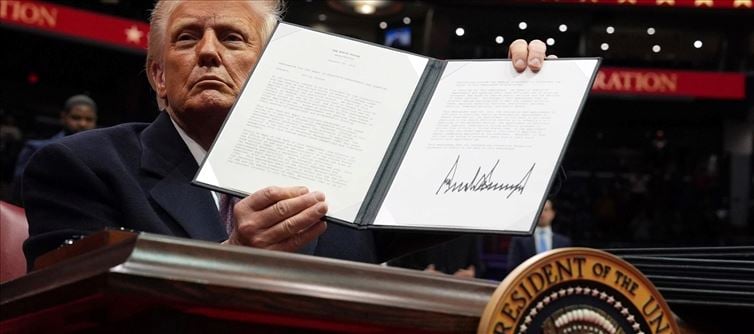
Regardless of the status of their parents, this policy guarantees that children born in the united states are citizens. Aiming to fulfill a campaign pledge, Trump's executive order is questionable because of possible legal challenges about immigration laws and constitutional rights.
Birthright citizenship is established law, according to Democratic attorneys general and proponents of immigrant rights. They contend that although presidents have a great deal of power, they are unable to alter the 14th Amendment on their own. "The president cannot, with a stroke of a pen, write the 14th Amendment out of existence, period," said Attorney General Matt Platkin of New Jersey.
Legal Battle Over Birthright Citizenship
The white house has stated that it is prepared to take the states to court, rejecting the cases as a continuation of Left-wing resistance. white house Deputy press Secretary Harrison Fields stated, "Radical Leftists have two options: they can join forces with President trump or they can choose to go against the grain and disregard the overwhelming will of the people."
This case is personal to Connecticut Attorney General William Tong, the country's first elected Chinese American attorney general and a US citizen by birthright. He emphasized, "The 14th Amendment states clearly that if you are born in the united states, you are an American. For a period. Complete halt."
Understanding Birthright Citizenship
The main question is whether or not everybody born in the US should be awarded citizenship, regardless of the immigration status of their parents. Currently, those who are in the US illegally or on visas can have children who, if born here, immediately become citizens. Supporters claim that the 14th Amendment enshrines this idea.
Trump and his supporters argue for stronger citizenship requirements, challenging this reading of the amendment. Birthright citizenship is applicable in over 30 nations, including the US. On the other hand, the majority of countries either have modified birthright citizenship with legal residency conditions or award citizenship based on parental citizenship.
Details of Trump's Executive Order
Trump's move calls into question whether citizenship is automatically granted to all people born in the united states under the 14th Amendment. "All persons born or naturalized in the united states and subject to the jurisdiction thereof, are citizens of the united states and of the State wherein they reside," reads the amendment, which was ratified in 1868 following the Civil War.
According to the order, US jurisdiction does not extend to offspring of non-citizens. It does not include those whose dads were neither citizens nor authorized permanent residents, and whose mothers were not lawfully in the United States. Those whose dads were not citizens or lawful residents but whose moms were temporarily in the country lawfully are similarly impacted.
The directive, which goes into effect on february 19, forbids federal agencies from recognizing these organizations' citizenship. Whether it will affect current birthright citizens retrospectively is yet unknown. Citizenship documents for those prohibited by this decision are not to be issued or accepted by federal authorities.
Significant disparities in how the US interprets immigration laws and constitutional rights are brought to light by this continuing court dispute.




 click and follow Indiaherald WhatsApp channel
click and follow Indiaherald WhatsApp channel